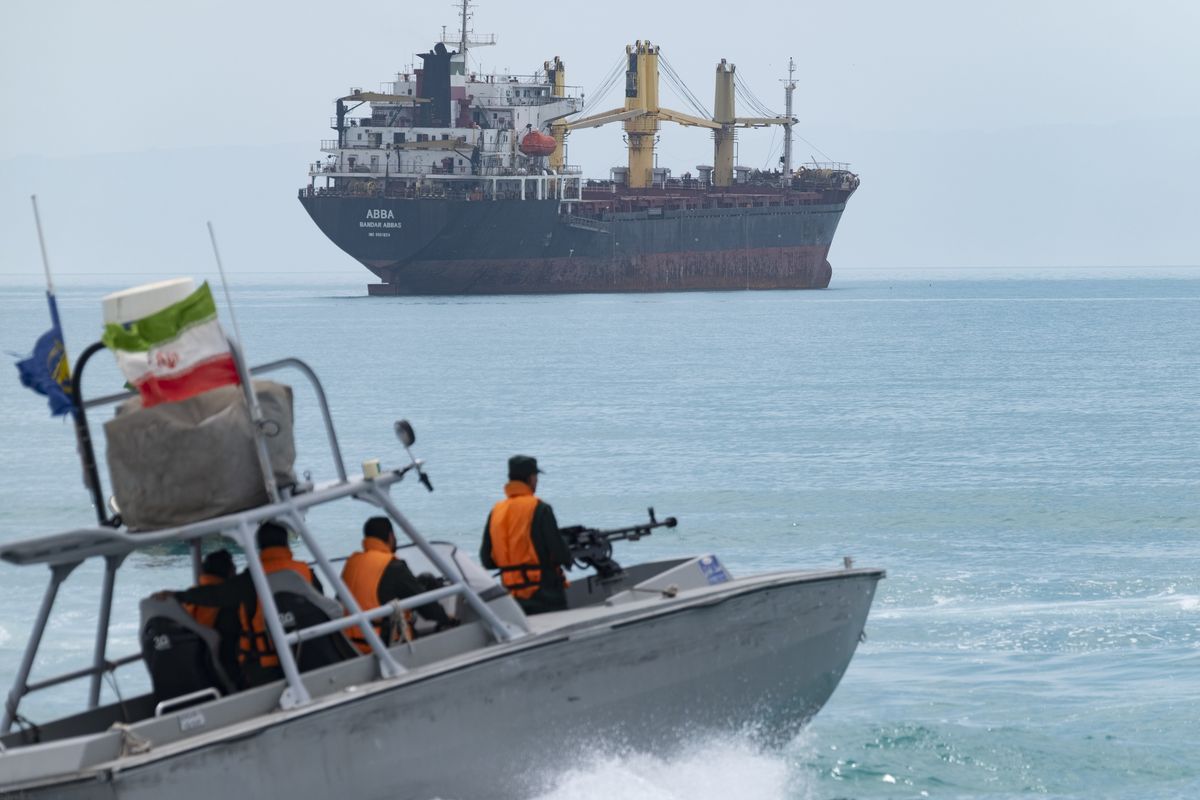OPINION — “The distinction between a well-regulated army and a mob, is the good order and discipline of the first, and the licentious & disorderly behaviour of the latter.” This self-evident maxim, included as part of a longer admonition from General George Washington to his subordinate commander Major General Israel Putnam on the eve of the Battle of Long Island, is as resonant today as it was in 1776, and one the Israel Defense Forces (IDF) leadership would do well to take note of.
It’s no small coincidence that the impetus for Washington’s reminder to Putnam was a pre-battle breakdown of fire discipline. Washington understood all too well how undisciplined conduct corrodes mission success. “It was with no small degree of concern,” he initiated his missive, “I perceived yesterday a scattering, unmeaning and wasteful fire, from our people at the enemy, a kind of fire that tended to disgrace our own men as soldiers, and to render our defence contemptible in the eyes of the enemy…” In today’s world, General Washington would have to add, ‘the eyes of public opinion’.
The tragic killing of three Israeli hostages as an apparent result of the breakdown of fire discipline, raises real concerns about how the IDF is executing this responsibility, as do reports of IDF soldiers engaging in gratuitous and malicious conduct in Gaza and the West Bank. Israeli soldiers have been accused of burning critically needed food stocks, destroying and defacing innocuous civilian property, and defiling protected religious sites—all while celebrating the misdeeds on selfie-videos full of dehumanizing, racist slogans.
The challenge of preserving discipline is an imperative command responsibility; a responsibility especially challenging when confronting a lawless enemy. This is an acute challenge today for IDF commanders in Gaza. And while it may be no surprise that young soldiers caught up in the chaos and emotion of this mission might engage in such misconduct, left unaddressed, these actions will only bolster the steady flow of false, propagandized narratives about Israel’s illegitimacy and invalid motives in this conflict. It is therefore imperative that the IDF confront these allegations swiftly, transparently, and effectively.
It's not just for the President anymore. Cipher Brief Subscriber+Members have access to their own Open Source Daily Brief, keeping you up to date on global events impacting national security. It pays to be a Subscriber+Member.
The IDF is one of the most professional, well-trained military forces in the world, and there is no reason to believe these actions are representative of the vast majority of its soldiers or its operations as a whole. In my experience, notwithstanding frequent and distorted allegations to the contrary, the IDF has a deep and longstanding commitment to abiding by its international legal obligations and the attendant dictates of the laws of war. It also has robust systems to investigate allegations or suspicions of, and to ensure accountability for, operational misconduct.
The IDF hasn’t established these accountability mechanisms as a façade or simply to serve as a block check. They recognize that ensuring compliance with legal obligations is not only the right thing to do, it’s an operational and strategic imperative. Left un-addressed, these incidents risk repetition and will jeopardize Israel’s valid strategic goals of bringing the hostages home and eliminating Hamas as a threat.
With this as background, perhaps more disturbing than the alleged misconduct itself is the suggestion, at least in one report, that some in the IDF feel that appropriate disciplinary action should be deferred until after combat operations are completed. According to a CNN report, rightly disturbed by the reports of misconduct, Retired IDF General Israel Ziv reached out to an IDF commander in charge of at least some of the soldiers involved. The response he received was apparently that the brigade commander would punish the soldiers involved “once they stop fighting.” Setting aside the indeterminacy of that mark on the wall, enforcing standards of good order and discipline is an immediate combat imperative, not an afterthought.
Cipher Brief Subscriber+Members enjoy unlimited access to Cipher Brief content, including analysis with experts, private virtual briefings with experts, the M-F Open Source Report and the weekly Dead Drop - an insider look at the latest gossip in the national security space. It pays to be a Subscriber+Member.
Seizing and maintaining the moral high ground in the chaos and intense pressures of war is never easy, especially when fighting an unscrupulous enemy like Hamas that at best, treats compliance with the law of war as a weakness to be exploited. Erecting a bulwark against moral and legal backsliding in these circumstances is essential. It requires setting standards of ethical, moral, and lawful operational conduct and training relentlessly to those standards. It also requires holding individuals to account for violations. The temptation to subordinate these values to military necessity is powerful in the midst of crisis, but doing so is ultimately corrosive to mission accomplishment.
Fortunately, the brigade commander’s apparent approach to dealing with the misconduct of his soldiers seems to be out of step with senior leadership. According to the IDF, soldiers who were recently filmed singing and praying on a microphone in a mosque in Jenin were “immediately removed from operational activity." Rear Admiral Daniel Hagari, the IDF military spokesperson, promised that those engaged in misconduct would be disciplined accordingly. “IDF forces operate according to the values and spirit of the IDF," he said. "Soldiers on the battlefield are required to act professionally and ethically, and we will not compromise on this.” Enforcing these standards is, he asserted, “the way in the IDF.” These are helpful reassurances, but unless backed with consistent, transparent action, they will achieve little.
To say the operational challenges the IDF is grappling with in Gaza are intense is an understatement. Yet they pale in comparison to the complex strategic environment Israel has to navigate to prevail in this conflict—an environment where critics abound and are spring-loaded to leverage perception over fact in their relentless attacks on Israel’s legitimacy. The margin of error is too thin to hand its adversaries and critics easy wins. The IDF has begun referring instances of misconduct to its General Staff Fact Finding and Assessment Mechanism—a positive first step.
As Washington perceptively noted so long ago, “Men, therefore, who . . . have step’d forth in defence of everything that is dear & valuable, not only to themselves but to posterity, should take uncommon pains to conduct themselves with uncommon propriety & good order; as their honor reputation &c. [and the rest] call loudly upon them for it.” In this regard, as inconvenient a truth as it may be for many, the IDF stands in stark contrast to Hamas and its allies. It, not Hamas, is the well-regulated Army. It holds the high ground. Now it must maintain it.
The Cipher Brief is committed to publishing a range of perspectives on national security issues submitted by deeply experienced national security professionals.
Opinions expressed are those of the author and do not represent the views or opinions of The Cipher Brief.
Have a perspective to share based on your experience in the national security field? Send it to Editor@thecipherbrief.com for publication consideration.
Read more expert-driven national security insights, perspective and analysis in The Cipher Brief














